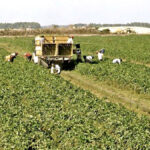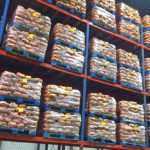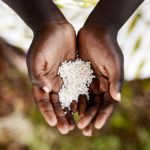It’s well documented that the pandemic has had an uneven effect on Canadian incomes and businesses. While some have suffered greatly due to the disruptions caused by lockdowns, others have experienced an unprecedented surge in spending ability, or alternatively, debt-reduction capacity, because of the limits on how and where they can spend money. Looking back,
Editorial: Good times, great opportunities

Editorial: The carbon credit reality
Canadian farmers, industry and governments should pay close heed to the recent announcement that one of Canada’s largest food processors has inked a deal to buy carbon credits from American farmers. Maple Leaf Foods will pay $20 per tonne to U.S.-based Indigo Ag for carbon stored on American farms applying soil-building practices. It represents a
Editorial: Maintaining independent agricultural extension is key
The Manitoba government’s announcement that it will close agricultural offices and consolidate services this spring is a significant shift, but one that reflects a modern reality. As of April 1, public-facing services will be delivered out of 10 regional service centres instead of 21 and they will be staffed by provincial Agriculture Department representatives, crop
Editorial: Food industry adjusting to changing consumer behaviour
Jambalaya will be one of the more pleasant memories I’ll associate with 2020. Specifically, how I learned to make a spicy pasta version that closely replicates a dish we often ordered when we joined friends for Pasta Tuesdays at a local restaurant. That is, before COVID-19 changed our social life. Hopefully, 2021 will mark a

Editorial: Our food security is vulnerable
A common theme that emerges when talking to food-industry observers about the ongoing pandemic is that while Canada’s agriculture and food systems are highly efficient and productive, they lack resilience. Six months into a pandemic that shows no signs of being over any time soon, cracks that were virtually invisible before are now becoming impossible

Editorial: Too many kids still dying on farms
Over the last two decades there has been a noticeable increase in education and training designed to make farms safer places for children to grow up. Kids, even toddlers, often like to tag along with their farming parent. As they grow older and more capable they have traditionally been an important source of labour on

Editorial: Surplus food purchases symbolic of broader discussion
On the surface, the $50-million Surplus Food Rescue Program recently launched by the federal government is simply a sensible response to highly unusual circumstances. The government is buying up surplus fruits, vegetables, meat, fish and seafood from farmers and fishers who would normally supply the foodservice sector and distributing it to Canadians suffering from food
Editorial: Trade shenanigans divide and conquer
While many Canadians were enjoying backyard barbecues this summer after months of being isolated from family and friends, the country quietly embarked on a new era of trade with two of its largest trading partners. The U.S.-Mexico-Canada Agreement (USMCA), referred to as the CUSMA in Canadian documents, came into force to replace the North American

Comment: Bayer settlement aimed at getting back to business
Lawsuit was putting the safety of glyphosate in the legal realm, not the scientific
Imagine buying a house that you’ve always had your eye on only to learn that some seemingly fixable flaws were actually masking a much more deeply rooted problem. That’s the situation Bayer CropScience found itself in shortly after sealing its US$63-billion takeover bid for rival life science company Monsanto in 2018. It became clear early

Editorial: A global barn raising
Whenever you hear people romanticizing the good old days of pioneering life on the Prairies, the nostalgia is almost always tied to the community spirit. By most measures, the early settlers lived a miserable existence. But they were all in it together and all working towards the same end, firstly to survive and then to


